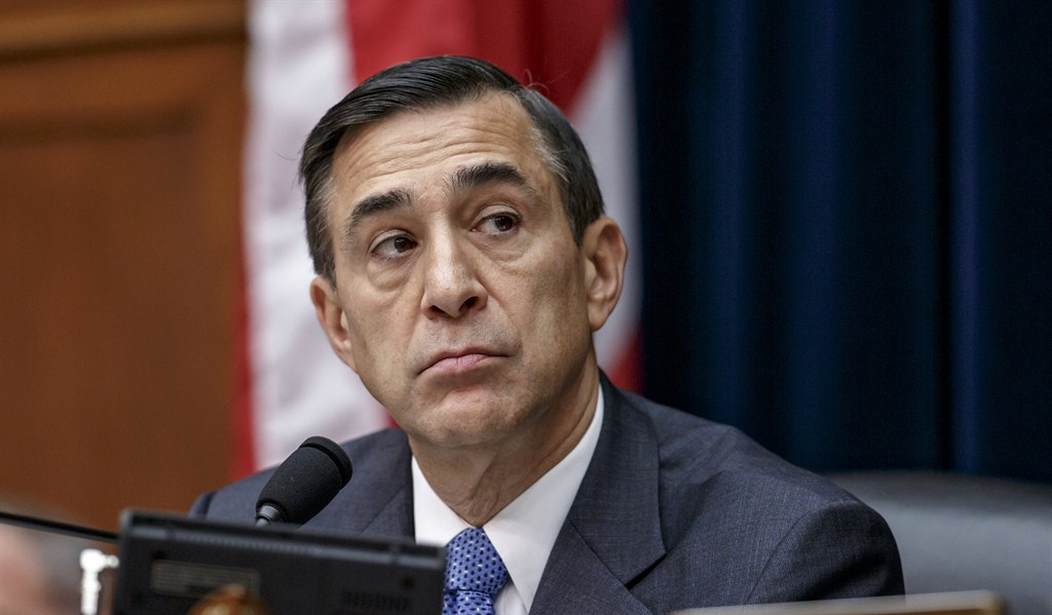In 2003, California voters recalled then-Governor Gray Davis. Rep. Darrell Issa (R-CA) helped bankroll the 2003 effort, but the California representative says the current effort is "more important" than the one 18 years ago.
In an interview with Fox News, Issa said he believes California voters deserve an opportunity to vote on the recall question.
"But I also believe that what this is is an opportunity for the governor and for the state to change the direction it's going," said Issa. "When people of the state believe we’re going in the wrong direction on the coronavirus vaccine, the wrong direction on taxation, the wrong direction on spending, the wrong direction on energy—where lights are going out and power is going out and yet there are no plans to stabilize the grid—go through each one of these and they’re eerily similar to 2003."
The California representative spent around $1.3 million of his own money to recall Gov. Davis, but Issa believes the current recall is more important because of the exodus of businesses and taxpayers from the state.
"You look at the best and the brightest and highest earners who are choosing to leave sometimes with companies, and sometimes as individuals," Issa told Fox News, pointing out that California will lose a congressional seat for the first time since 1850. "Historically, we had been a place more people wanted to come to in the nation as a whole. …Now we’re going to shrink at least one vote—I think that’s telling."
Recommended
California is a dark blue state, but a recent poll found 36 percent of Californians support the recall effort against the governor, 19 percent of respondents remain undecided, and 45 percent support Newsom. Issa believes the recall effort is still worth pursuing even if the measure ultimately fails on the ballot.
"Even if it doesn’t succeed, even if it is only 45% of the population that strongly believes we are going in the wrong direction, that does not mean we are going in the right direction," said Issa.
The recall campaign is on the verge of reaching a major milestone, attaining the 1.5 million signatures necessary to put the recall question before voters. The campaign recently announced that it had collected more than 1.4 million signatures. The signatures will need to be verified so the campaign is hoping to collect as many as 2 million signatures by the March 17 deadline.
Several Republicans, including former San Diego Mayor Kevin Faulconer, are prepared to challenge Newsom should the recall effort prevail.
Gavin's hypocritical visit to the ritzy French Laundry Restaurant in violation of his own coronavirus guidelines galvanized many supporters behind the effort. In recent days, as the recall question inches closer to the ballot, Newsom has suddenly reversed course and is now pushing for schools to reopen. The governor has also reversed course on the lockdowns. The governor has been accused of hiding data that allegedly justifies the sudden reopening.
Under Newsom, California has seen an uptick in unemployment, crime, and homelessness, as well as a faltering of the state's power grid. Despite Newsom's lockdown restrictions, among the most painful in the nation, nearly 42,500 Californians have died from the virus since the beginning of the pandemic.
























Join the conversation as a VIP Member